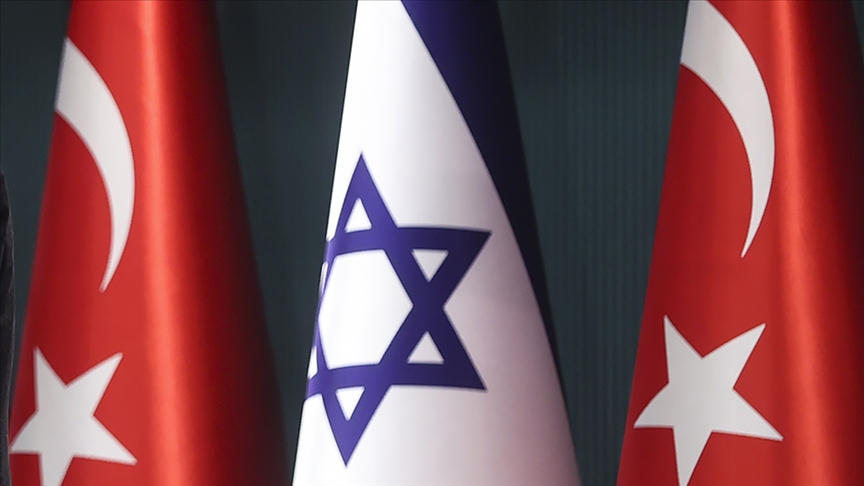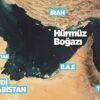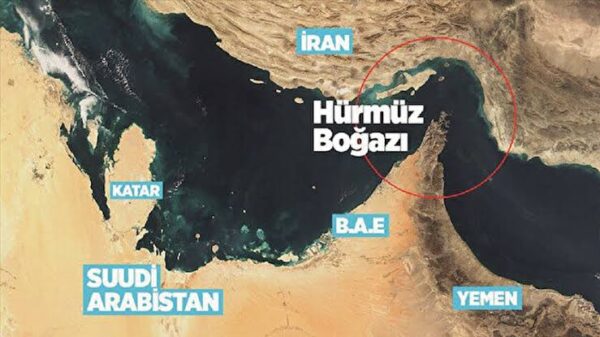Turkey being the first Muslim country to officially recognize Israel immediately after its establishment in 1949 is one of the important indicators that made the relationship between Tel Aviv and Ankara special from the beginning. The diplomatic relations established on March 29, 1947, with Turkey’s recognition of Israel’s independence, were a significant sign for the future of relations between the two countries and the potential they carried. In the Middle East, a geography dominated by monarchies and military regimes, Turkey and Israel stand out with their democratic, secular characteristics, as well as their alignment with the Western axis during the Cold War, which is another important common point in the historical context of the two countries. Despite the opening of diplomatic missions between Turkey and Israel in 1950 and the common axis mentioned above, a significant rapprochement in relations between the two countries could only be seen in the 1990s.
Until this period, relations between Tel Aviv and Ankara were mainly based on intelligence cooperation, within the framework of the “periphery doctrine” determined by Israel. In the same period, Israel aimed to overcome the isolation and loneliness it experienced in the spiral of tension with Arab states, which often resulted in wars between the parties, by building closer relations with non-Arab states. In this context, Turkey, as a non-Arab Muslim state, had a very important position in Tel Aviv’s eyes, along with Iran during the Shah era. On the other hand, it is also possible to say that Tel Aviv’s interest in Ankara was not reciprocated to the same degree. Turkey, which went through very painful periods in domestic politics during the Cold War, took care to maintain at a certain level the legacy of “not being involved in the internal affairs of Arab states and their relations with each other” that it inherited from the founding ideology of the republic, also in the matter of Israeli-Arab relations. Indeed, Turkey, within a secular, democratic system, in an effort for broader integration with the West, had concentrated the focus of its foreign policy relations on the Atlantic-European line rather than the Middle East. So much so that even in the 1970s, when some of Turkey’s neighbors in the Middle East took significant steps towards acquiring weapons of mass destruction and ballistic missile capability, Turkey chose to remain relatively silent on developments in the region.
The Key To The Lock: Madrid Peace Conference
In the 1990s, the first and basic sign of the escalation in relations between Turkey and Israel can be found in the 1991 Madrid Peace Conference. At the conference, hosted by Spain with the support of the US and the Soviet Union and with great support from the international community, it was envisaged to revitalize the peace process between Israel and Palestine. The conference, which also included Arab states such as Syria, Lebanon, and Jordan, greatly helped Tel Aviv to formally develop bilateral relations with many Arab states and increase its diplomatic communication capabilities.
In this sense, the Madrid Peace Conference served as a key in raising the diplomatic mission between Turkey and Israel to the level of embassy in 1991.
Acceleration in Relations
Two years after the Madrid Peace Conference, in 1993, the official visit of the Turkish Republic’s Foreign Minister Hikmet Çetin to Israel was the harbinger of the good relations that would gradually gain momentum between the two countries. Following the memorandum signed by Minister Çetin with his Israeli counterpart during his visit to increase mutual cooperation, the high-level official visits made by Prime Minister Tansu Çiller in 1994 and President Süleyman Demirel in 1996 to Israel are important indicators of this increasing momentum.
Again during this period, President Demirel, regarding the increasing rapprochement between Ankara and Tel Aviv, stated: “Turkey and Israel have decided on regional cooperation to increase the economic prosperity of the region and to stop terrorism.”
Following the high-level visits from Turkey to Israel, the return visits by Israeli Foreign Minister Shimon Peres and Israeli President Ezer Weizmann during the same period indicated that Ankara’s interest would receive more response from Tel Aviv and that a more comprehensive cooperation agenda than Ankara had anticipated was at the door.
Effects Arising From Domestic Politics
In the rapprochement between Turkey and Israel in the 1990s, changes in the domestic politics of Israel and Turkey also had an impact. The discomfort caused by the Erbakan government, known as Refahyol, formed by the Welfare Party (RP) and the True Path Party (DYP), which was in office between June 28, 1996, and June 30, 1997, in the Turkish General Staff and various circles, triggered significant developments in foreign policy. During this period, the RP, which was criticized for allegedly having an anti-secular attitude in Turkey, and its foreign policy efforts that the Erbakan government tried to set in a different direction from traditional Turkish foreign policy, caused public debates. The establishment of the cooperation organization called D-8 between Bangladesh, Indonesia, Iran, Malaysia, Egypt, Nigeria, Pakistan, and Turkey, with Erbakan’s initiative, as well as the accusatory statements by Libyan leader Muammar Gaddafi during an official visit by Erbakan, claiming that Turkey was oppressing Kurds, caused major shocks in Turkey’s domestic political environment.
With increasing public pressure, it is considered that the Turkish General Staff and the Ministry of Foreign Affairs accelerated the momentum in Turkey-Israel relations and increased their pressure on the current government on this issue to balance Erbakan’s foreign policy moves and also to use it to corner the RP in front of its own voter base in domestic politics.
Throughout the 90s, the General Staff insistently advocated the development of close relations with Israel, while at the same time the Foreign Ministry bureaucracy showed that it had a more determinative position in foreign policy than the current government. On the other hand, it should not be forgotten that in this attitude of the General Staff, not only domestic political concerns but also the effect of increasing security concerns throughout the country during the 90s played a role.
Looking at the developments from Israel’s domestic political front, journalist Mehmet Ali Birand’s accounts on the subject are an important anecdote. Birand states that in his interviews with Yitzhak Rabin and Shimon Peres, both figures left his questions about their approach to the terrorist organization PKK unanswered. On the other hand, it is noteworthy that Benjamin Netanyahu clearly and explicitly stated that they saw the PKK as a terrorist organization and that Israel did not support the establishment of an independent Kurdish state.
New Axis
According to assessments, until the first months of 1996, while Ankara’s interest in cooperation with Tel Aviv covered cultural and economic issues, Israel believed it had opened an important opportunity door especially for military cooperation. Tel Aviv, which made intense efforts on this issue, with the support of Turkish Foreign Ministry and General Staff cadres, had the opportunity to sign an important military cooperation and coordination agreement with Ankara in 1996. Under the signed agreement, fighter jets of the Israeli Air Force would be able to train in Turkish airspace. Again in August of the same year, the Turkish and Israeli governments signed an additional agreement on military technical knowledge and expertise, agreeing that the modernization of 54 F-4 Phantom fighter jets belonging to the Turkish Air Force would be carried out by Israel Aerospace Industries (IAI), one of Israel’s leading aviation companies. Making the agreement even more attractive, Israel gave Turkey a credit almost equal to the entire cost of the modernization.
The visit of Chief of General Staff İsmail Hakkı Karadayı and Defense Minister Turhan Tayan to Israel in 1997, followed by the arrival of Israeli Foreign Minister David Levy and Chief of General Staff Amnon Lipkin-Shahak to Ankara in the same year, reveals the increasing military cooperation dimension of relations. In addition, the intelligence sharing memorandum officially signed between MIT and MOSSAD during this period is also very important.
The increasing military and diplomatic cooperation between Turkey and Israel during this period can be examined under three points:
Lobby support: Israel, which is the most reliable ally of the US in the region, is known to have a wide influence on decision-makers especially in Washington’s policy-making processes. Israel, which has the advantage of lobby organizations such as the American Israel Public Affairs Committee (AIPAC) and Christians United for Israel (CUFI) that are tremendously effective in US politics, against Armenian and Greek lobbies that try to erode Turkey-US relations in every period, is capable of effectively blocking anti-Turkish lobbies in this context.
Counter-terrorism: The history of cooperation between Ankara and Tel Aviv on counter-terrorism dates back to the 1970s. Especially the process in which Israel’s Consul General in Istanbul, Efrahim Elrom, was kidnapped and killed by left-wing terrorists who were members of the Turkey People’s Liberation Party-Front (THKP-C), has taken its place in the pages of history as an important incident in this sense. It is known that intelligence sharing was frequently carried out between the National Intelligence Organization (MIT) and the Israeli intelligence community, as Turkey faced the threat of left-wing terrorism in the 70s. This is because the Bekaa Valley in Lebanese territory is the first nucleus and basic training center of left-wing terrorist organizations such as the THKP-C mentioned above.
Additionally, the PKK, which had the opportunity to benefit from the training camps of the PLO based in the Bekaa Valley during the Lebanese Civil War, also entered into organizational relations with important legal and illegal left-wing organizations and structures of the 1970s in Turkey, such as the Revolutionary People’s Liberation Army-Front (DHKP-C) and the Turkish Workers’ Party (TIP), and was greatly influenced by these organizations. In this sense, it is clear that the PKK has gained significant experience through collaborations it developed both inside and outside since the 70s, when left-wing terrorism accelerated in the world and in Turkey. In this context, the intelligence cooperation efforts of Israel and Turkey during this period also coincide with the establishment period of the PKK. Looking at this historicity and the relations that the PKK established with regional countries against Turkey after 1980, it is not difficult to situate the joint efforts of Tel Aviv and Ankara on counter-terrorism as one of the main pillars of cooperation in the 1990s.
Two and a Half War Strategy: The concept of “two and a half wars” put forward by Şükrü Elekdağ at the beginning of the 1990s is quite valuable in terms of revealing Turkey’s threat perception during this period. According to the concept, Greece and Syria had entered into a cooperation of interest against Turkey, and both countries intensively supported the terrorist organization PKK for their purposes. In a possible conflict situation, Turkey’s defense should be designed to consider two fronts in the east and west, and the threat of the terrorist organization PKK inside.
Increased Deterrence Thanks To Cooperation With Israel
The increasing hostility of Syria towards Turkey with the domination of the Baath regime increased Damascus’s desire to assume the role of state-sponsored terrorism. It is also another fact that until the 2001 Adana Memorandum, Syria supported the terrorist organization PKK with all the means at its disposal. It is understood that the Baath regime carried its hostile attitude towards Turkey over three main headings to the extent of using state-sponsored terrorism as an apparatus.
These headings are: Syria’s never-ending claim of rights over Hatay; Seeing the Southeastern Anatolia Project (GAP), which is an important development initiative of Turkey, as a threat to itself regarding water resources; Ideological attitude due to its proximity to the Western alliance and NATO membership within the Cold War environment; Damascus’s effort to shift the focus of Syrian Kurds to anti-Turkey sentiment through the PKK, despite not giving citizenship rights even to the Kurdish population within its own territory stand out.
Damascus, which increasingly provided bases, training, and weapons support to the terrorist organization PKK in the post-1980 period, and the PKK’s increasing attacks on Turkey in the 1990s and armed actions threatening the country’s internal peace to a level that should be seen as one of the important triggers of security cooperation between Turkey and Israel in this context.
The cooperation between Ankara and Tel Aviv in the 1990s was a move that strengthened Turkey’s hand in its fight against PKK terrorism, as it increasingly enhanced its deterrence over Syria. Ultimately, the warnings made by President Süleyman Demirel at the opening of the legislative year and by Land Forces Commander Atilla Ateş directly at the Syrian border; that if support for the terrorist organization PKK was not cut off, if the protection of the organization’s leader Abdullah Öcalan continued in Syrian territory, this would be considered a “casus belli” or cause for war, yielded results and the ringleader was expelled from Syrian territory by the Baath regime.
At this point, it is undeniable that in Syria’s minimizing its support for the terrorist organization PKK against Turkey, the effect of Ankara’s developing relations with Tel Aviv was as significant as Ankara’s determination. Because Syria, which is one of the main parties of the Arab front along with Egypt in the Israeli-Arab tension, was not strong enough to bear being threatened from both the north and the south. Syria, which had occupied the northern region of Lebanon in 1976, was persistently continuing a conflict with Israel both directly and through proxies. Damascus, which knew Turkey’s military capacity very clearly, definitely saw that it could not bear the weight of a two-front war with Ankara’s determined stance and the rapprochement on the Ankara-Tel Aviv line. With Turkey’s use of diplomacy along with compelling elements, the Damascus regime saw that using the terrorism card against Ankara had become unsustainable and realized that the cost of its support for terrorism had long exceeded its benefit from its perspective.
With this military cooperation agreement, Israel found the opportunity to overcome the airspace constraints it experienced due to the size of its territory and the narrowness it experienced in fighter jet training in this area, using Turkish airspace, which is much closer compared to its counterparts, with a cost-effective benefit. Although the scope of the cooperation agreement has still not been fully disclosed today, according to assessments; in any crisis or war situation, Turkey is in an excellent position to provide safe harbors for Israel’s submarines and ships. The geographical advantages of Tel Aviv developing cooperation with Ankara are clearly evident.
On the other hand, it is noteworthy that after the fall of the Berlin Wall and the unification of the two Germanys, three Soviet-made MiG-29 fighter jets were delivered to Israel, and technical information about the MiG-29s, which were the main fighter jets of the Syrian air force, was transferred by the Israelis to Turkey against the possible air threat of the Damascus regime.
The 1995 Syria-Greece agreement, which gave Greek aircraft access to and use of Syrian air bases, is also an important development in this context. The relations developing especially on the axis of military cooperation between Turkey and Israel, as mentioned above, turned into a security nightmare for Syria, and the Damascus regime felt the need to go in more different combinations than ever before for new partnerships in its close geography. The 1995 Syria-Greece agreement should be evaluated in this context, and it should not be forgotten that in the common threat perception of the two countries, Turkey being at the top is the main trigger on the way to this agreement.
While ships belonging to the Turkish Navy visited Israel’s Haifa Port within the framework of the “SeaWolf-97” exercise, the joint “Reliant Mermaid” naval exercise conducted by the Turkish-US-Israeli navies in January 1998 attracted attention in terms of demonstrating the strength of this cooperation; it became the target of condemnation statements from Iran and Arab states.
Moreover, the flying of Israeli fighter jets near Iraq and Iran, which share borders with Turkey, could create a significant deterrence over these countries that have a hostile attitude towards Tel Aviv. Again, Israel, which is frequently threatened with the use of ballistic missiles by Iran, would have the opportunity to increase its effectiveness in countering these threats by gaining the opportunity to use Turkish airspace. In this way, Israel could find the opportunity to greatly increase its deterrence against its adversaries in the region with Turkey’s contribution.
The S-300 crisis between Turkey and the Greek Cypriot Administration (GCA) was also successfully overcome to Turkey’s benefit as a productive result of the close cooperation between Tel Aviv and Ankara. According to the statement of Greek Cypriot officials and news reflected in the press, in November 1998, two Mossad agents were caught in Southern Cyprus with various surveillance equipment on them, and after this incident, the GCA’s suspicions that Israel was providing intelligence support to Turkey increased even more.
The rising cooperation between Ankara and Tel Aviv also reinforced the rapprochement between Iran and Syria that developed with the process that began with Iraq’s attack on Iran in the early 1980s, leading the two countries to conduct their foreign policy moves on regional issues with close coordination. It is another reality that this process has continued until today. Iran, which was directly involved in the Syrian Civil War that began in 2011, on the side of the Baath regime with Shiite militias and weapons and ammunition support, has tremendously increased its influence over Bashar al-Assad as of 2021. So much so that it is possible to say that the gap in the relationship between the two countries has sharply widened in favor of Iran, and the control of the Baath regime has almost been shared between Russia and Iran.
Assessment
The relations that developed between Israel and Turkey in the 1990s in terms of military, cultural, economic, and intelligence cooperation are not just a partnership but also the result of an effort to form a strategic axis.
In international relations, cooperation agreements between two countries are a frequently encountered situation, and they can lead to the formation of a beneficial environment that does not remain only on paper in terms of the positions of the countries and the potential benefits they expect from each other, while sometimes it is seen that they remain only as an agreement on paper.
The agreement signed between Turkey and Israel in the 1990s was not only the peak point of an increasingly accelerating momentum from the beginning of the 1990s, but it was also the biggest supporter of the good relations that would continue until the first half of the 2000s, although its tempo decreased from time to time. The rapprochement between these two states in the Middle East, which have a secular, democratic system and are non-Arab, provided significant benefits for both countries during this period.
The will put forward by Israel and Turkey to revitalize relations again as of 2021 brings to mind the 1990s with their possible strategic cooperation in the Eastern Mediterranean. The modernization of Turkish fighter jets with the 1996 military cooperation agreement and joint production efforts for Popeye missiles have caused increasing discomfort for Athens towards Tel Aviv.
Greece, which has historically been in disagreement with Turkey on various issues, did not approve of Turkey’s strengthening due to its military relations with Israel. Greece, which was traditionally pro-Arab, only agreed to establish full diplomatic relations with Israel in May 1990. In February 1998, Greek Foreign Minister Theodoros Pangalos, who would later play a direct role in harboring the leader of the terrorist organization PKK, Abdullah Öcalan, characterized the cooperation between Tel Aviv and Turkey as an “alliance of criminals” and “a threat to regional security,” and in September 1998, he led a joint summit with the foreign ministers of Iran and Armenia, ultimately trying to develop an encirclement strategy against Turkey with an effort that proved unsuccessful from his perspective, as shown by Syria’s retreat on the PKK issue and the Greek-GCA partnership’s retreat in the S-300 crisis.
–Mertcan Gürkan, graduated from the Faculty of Communication at Ankara University in 2016.
He completed his internship with a report titled “Expectations on the South Caucasus-Iran Line After the Nuclear Agreement” at the Eurasian Studies Center. He worked as an editor at the Crimean News Agency for a while and later contributed to various projects within the Police Academy. Since 2023, he has been continuing his academic work at the Gendarmerie and Coast Guard Academy.










